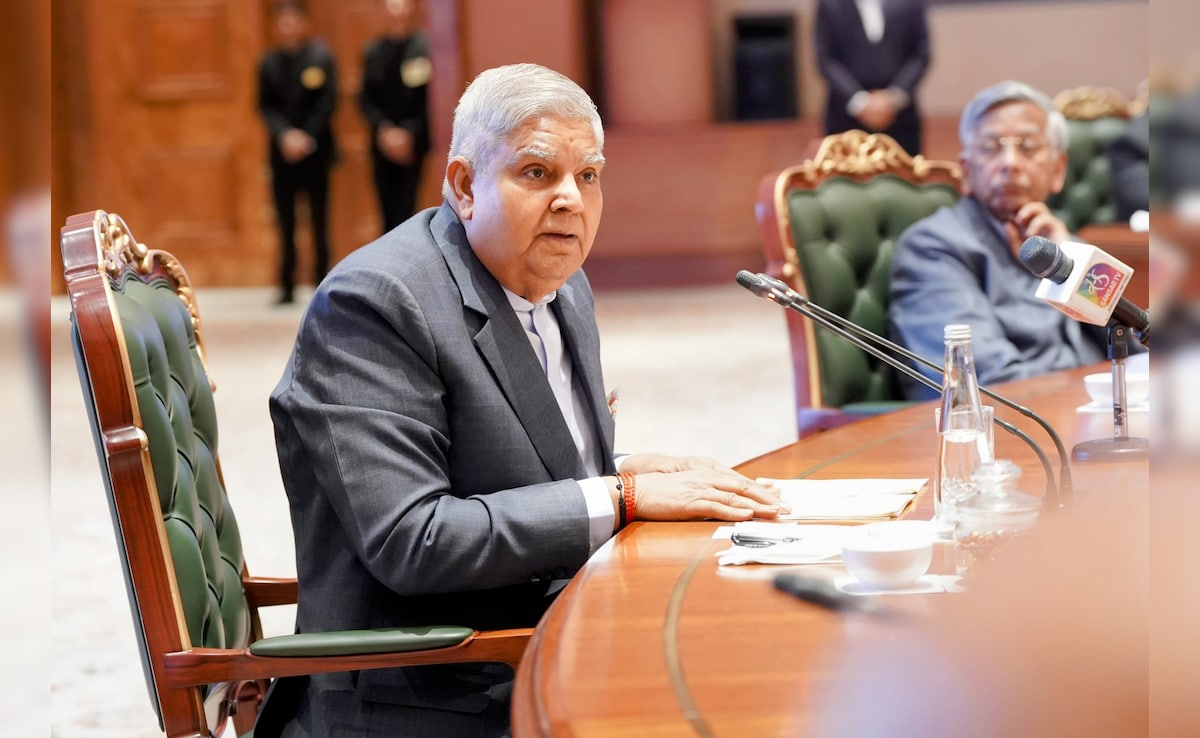 |
|
The sudden resignation of Vice President Jagdeep Dhankhar has sent ripples of shock and intrigue through the Indian political landscape. While the official reason cited was health concerns, as explicitly stated in his resignation letter to President Droupadi Murmu, sources within the political sphere suggest a far more complex and contentious series of events led to this unexpected departure. At the heart of the matter lies an Opposition-sponsored motion to remove a judge, Justice Yashwant Varma, following a significant cash recovery from his residence. This seemingly straightforward legal process triggered a chain reaction that ultimately resulted in a confrontation between the Vice President and the central government, leaving Mr. Dhankhar with what appears to have been a difficult choice: resign or face a potentially damaging no-confidence motion. The sources indicate the situation escalated rapidly after Dhankhar accepted the Opposition's notice, prompting intervention from the Centre. The government seemingly wanted to take the lead in the case against the judge, and the Vice President's move robbed them of that opportunity, initiating a power struggle that culminated in Dhankhar's resignation. This alleged phone call became a pivotal point. Details emerging suggest that the Centre expressed strong disapproval of Dhankhar's decision to accept the Opposition's notice. The Vice President, in turn, reportedly defended his actions, citing the powers vested in his office. This exchange allegedly became heated, leading to a breakdown in communication and trust between the Vice President and the government. The aftermath of this acrimonious phone call saw rumblings of a potential no-confidence motion against Mr. Dhankhar, a move that would have been a significant embarrassment for the veteran politician, especially coming just six months after a previous, ultimately unsuccessful, no-confidence attempt by the Opposition. Faced with the prospect of being removed from office in such a manner, Mr. Dhankhar seemingly chose to resign, framing his departure as being motivated by health considerations. This allowed him to maintain a degree of dignity and control over the narrative, avoiding a potentially damaging public battle. The official resignation letter, released via the Vice President's X (formerly Twitter) account, expresses gratitude to the President, Prime Minister, and Members of Parliament. However, the underlying circumstances paint a picture of deep political turmoil and disagreement. The swiftness and unexpected nature of the resignation have fueled intense speculation and multiple theories about the true motivations behind it. The cancellation of a farewell speech, also reportedly due to health concerns, has further deepened the mystery. Opposition leaders have criticized the government's handling of the situation and highlighted the absence of key ministers, JP Nadda and Kiren Rijiju, from a crucial business advisory committee meeting, suggesting this upset the Vice President. Allegations have also surfaced regarding perceived disrespect shown to the Chair by Mr. Nadda during a Rajya Sabha session, further contributing to the narrative of a strained relationship between the Vice President and the government. Mr. Nadda has refuted these claims, stating that his absence from the meeting was due to a prior parliamentary engagement and that his remarks in the Rajya Sabha were directed at interrupting opposition members, not the Chair. However, these rebuttals have done little to quell the swirling rumors and questions surrounding the resignation. Congress chief Mallikarjun Kharge stated that only the Vice President or the government truly knows the reasons behind the resignation, highlighting the lack of transparency and the prevailing sense of uncertainty. Dhankhar himself, just days before his resignation, had stated his intention to retire in August 2027, contingent on "divine intervention," making the sudden departure even more puzzling. This abrupt change in plans underscores the significance of the events that transpired and the apparent pressure Mr. Dhankhar faced. The incident underscores the complexities and potential for conflict within the Indian political system. It highlights the delicate balance of power between the executive and legislative branches, and the challenges of navigating political disagreements while maintaining stability and decorum. The Vice President's role as Chairman of the Rajya Sabha requires impartiality and the ability to mediate between the government and the opposition. The situation involving Justice Varma's case appears to have put Mr. Dhankhar in a difficult position, where his actions were perceived as favoring one side over the other, leading to the alleged intervention from the Centre. The subsequent resignation raises questions about the extent to which the government can exert influence over the Vice President and the potential consequences for the independence of the Upper House. The saga surrounding Jagdeep Dhankhar's resignation is a complex and multifaceted one, with significant implications for Indian politics. While the official explanation of health concerns provides a veneer of legitimacy, the underlying narrative suggests a power struggle, a breakdown in communication, and a forced resignation. The true motivations behind the resignation may never be fully revealed, but the incident serves as a reminder of the intense pressures and political maneuvering that can occur behind the scenes in the corridors of power.
Source: Inside Story: What Led To Vice President Jagdeep Dhankhar's Shock Exit
